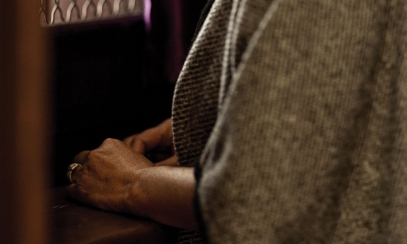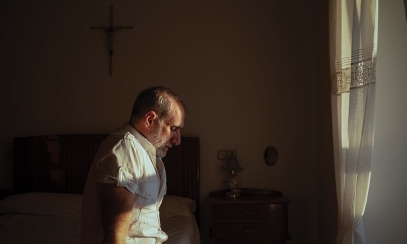
How Can I Overcome a Problem With Pride?
I Have a Problem With Pride.
I Have a Problem With Pride.
It seems to me that it is one of my more serious faults. What do I do?
It seems to me that it is one of my more serious faults. What do I do?
This is a fantastic question. In fact, one of the first requirements for attacking pride is acknowledging its existence.
Pride is one of those sneaky vices. It’s the kind of vice that we can see in other people but rarely notice in ourselves. The fact that you not only notice it in your own life but acknowledge that it is a problem is a great sign.
In order to deal with and root out pride, it would be helpful to have a definition. There are two definitions of pride that I find both compelling and helpful. The classic Catholic definition of pride is “the excessive love of one’s own excellence.” Hopefully, in this definition, you see that there is nothing wrong with the ordinate or appropriate love of one’s own excellence. Remember the two great commandments (essentially: love God with everything and love your neighbor as yourself). That second commandment about loving our neighbor as ourselves implies that we actually have some degree of love for self.
As difficult as it might be, we are actually called to love ourselves. This kind of love should be “ordered” or “appropriate.” This kind of love for self would be similar to the love that we have for others. Which reminds us that we need a good definition of love. The best definition of love I’ve come across describes love as “willing the good of the other.” Therefore, when applied to our own lives, love of self means willing one’s own good. That kind of self-love is praiseworthy and necessary in the life of the Christian.
Pride, on the other hand, is the excessive love of one’s own excellence. This goes beyond merely “being proud of oneself” and leads to the second definition of pride. St. Thomas Aquinas noted that pride is “that frame of mind in which a man, through the love of his own worth, aims to withdraw himself from subjection to Almighty God ….”
You can see how the “excessive” part of the definition does not lead a person to merely appreciate their own gifts but to see themselves as independent of God.
For this reason, pride has been called the “queen of all vices” and is often the source of so many other sins. I hope that this makes sense to you: If we do not need God, then we do not need to submit our lives to his law or to his grace. This might be one of the reasons why Satan, filled with pride, rebelled against the source of everything good in himself.
So how do we defeat pride? The brief answer is by growing in humility. This is accurate. The problem is, for many people it is not very helpful. Have you ever tried to be humble? What does that look like? Does it mean just “thinking humble thoughts”? If so, what is a “humble thought”? Or is there something else a person could do to grow in humility?
There is. And that “something else” is gratitude.
One thing absent from the truly prideful person’s life is gratitude. If I have an excessive love of my own excellence, I have no one to thank. If I do not see myself as subject to God, I am not grateful for any of his gifts. And I am not grateful for God’s gifts because I don’t recognize any of his gifts. On the contrary, the truly humble person is constantly thankful. The truly humble person constantly recognizes the gifts that come to him or her at every moment of the day.
If you would like to destroy pride, become humble. If you would like to become humble, be grateful. Practice gratitude. I would invite you to take five minutes every morning and five minutes every night. Set that time apart to recognize which gifts have come to you that day. What good things are in your life? What blessings has God given you that, in your most honest moments, you know that you didn’t deserve? And then thank God for those gifts. It would also not hurt if you thank the people around you for their acts of generosity, patience and love that they do for you each day as well. In fact, that might go quite a long way.
Father Michael Schmitz is director of youth and young adult ministry for the Diocese of Duluth and chaplain of the Newman Center at the University of Minnesota Duluth. Ask Father Mike is published by The Northern Cross.



